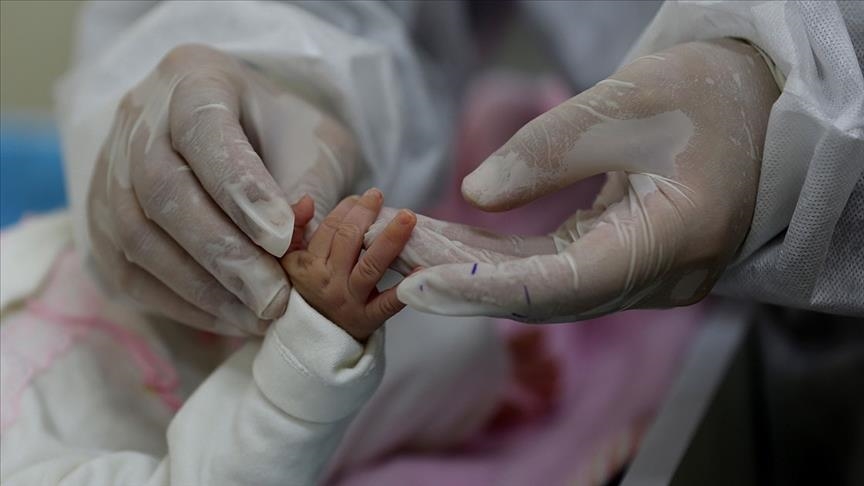COVID-19: Pregnant women face higher risk of death
New study reveals pregnant women 20 times more likely to die before childbirth

LONDON
Pregnant women infected with COVID-19 face a higher risk of death than those who are not, a new study has revealed.
The analysis, by a team of international scientists from the University of Oxford and published on the JAMA Paediatrics Network, found that pregnant women with the infection are also more likely to see their newborn babies die of the virus.
“Women with COVID-19 diagnosis were at increased risk of a composite maternal morbidity and mortality index. Newborns of women with COVID-19 diagnosis had significantly higher severe neonatal morbidity index and severe perinatal morbidity and mortality index compared with newborns of women without COVID-19 diagnosis,” a statement from the Network said.
“This study indicates a consistent association between pregnant individuals with COVID-19 diagnosis and higher rates of adverse outcomes, including maternal mortality, preeclampsia, and preterm birth compared with pregnant individuals without COVID-19 diagnosis,” it added.
A total of 2,130 pregnant women across 18 countries, including the UK, France, Italy and the US, were examined at 43 hospitals between March and October 2020. During this period 706 women had contracted the virus, 11 of whom died during pregnancy, while a further 1,424 were cleared of the infection.
The women had a 76% higher risk of contracting pre-eclampsia, a medical condition that causes blood pressure to rise. 59% were also more likely to give birth prematurely and would require their newborns to spend time in neonatal intensive care units.
Concerns over international travel
A leading scientist has warned that the resumption of foreign holidays in the UK could result in the introduction of new coronavirus variants and lead to a surge in cases as the country continues to emerge out of lockdown.
Speaking to BBC’s Radio 4, Sir John Bell, a professor at the University of Oxford said “just to be clear, things are great here, they are not so great in Europe. There are quite a lot of variants circulating in Europe, they have got a lot of disease in this current wave.
“And then you get to the developing economies, India, Africa, central and south America, where they have a terrible disease, with lots of variants. I think you have to say, really? Do we want people flying around the world and getting exposed to those sorts of issues?” Bell added.
On Friday 2,678 people had a confirmed positive test of the virus, adding this week’s total to 17,378. This represents a 4.1% decrease in comparison to the last seven days.
Forty deaths were reported within 28 days of testing positive for the virus on Friday. Between April 17 and 23, there were 162 deaths within 28 days of testing. This shows a 12.4% decrease in comparison to the previous week.
Over 33 million people were administered their first dose of the vaccine by the end of April 22, with 11 million people now having received the second. Vaccines are currently administered in two doses, 21 days apart.
Anadolu Agency website contains only a portion of the news stories offered to subscribers in the AA News Broadcasting System (HAS), and in summarized form. Please contact us for subscription options.







